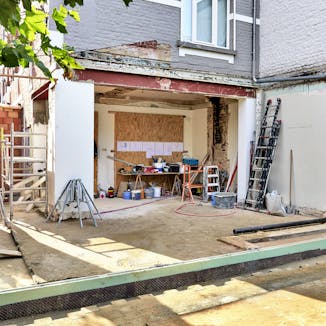Check your homeowner loan eligibility, see the latest rates and get a quote that’s right for you, without impacting your credit score.
Get a decision within an hour
Quote won’t affect your credit score
Poor credit & arrears accepted







These products are only available via a broker and can't be applied for directly
We're on a mission to improve the finances of the nation by helping you to spend wisely and save money



We're on a mission to improve the finances of the nation by helping you to spend wisely and save money



By Matt Fernell, Editor at Finance.co.uk.

A homeowner loan is a loan that specifically uses your home as collateral. It can enable you to borrow a large amount of money, but it means your home could be repossessed if you don’t keep up repayments. Here’s what you need to do to find the right homeowner loan.
To find the right loans for homeowners, it’s important you understand exactly what you need. Before you start getting quotes, you’ll need to know:
How much you want to borrow: Homeowner loans are usually for large amounts between £10,000 and £500,000. If you’re looking to borrow less, a personal loan might be a better option.
The loan term you want: Think about how much you can afford to pay each month - the longer the term, the lower your monthly payment will be, but you could pay more overall.
The value of your home: The lender will need an up-to-date valuation of your property to determine how much they can lend you.
Your outstanding mortgage balance: To work out how much equity is in your property, you need to know how much you have left to pay on your mortgage, along with the current value.
We can show you the latest homeowners loan rates and find quotes for loans that work for you. We’ll also check your eligibility before you apply without impacting your credit score.
To get started, you just need to give us some information about:
The loan you want
Your finances
Your personal details
You’ll then get a decision within an hour, and we’ll be in touch to discuss your options and help you find the right homeowner loan deal.
Getting a homeowner loan is a big commitment, and you need to be sure it’s the right option for you. Learn everything you need to know about how homeowner loans work.
If you need to borrow less than £25,000, an unsecured loan could be a better option. Although these may charge a higher interest rate, they can be borrowed over a shorter period, and your home will not be at risk if you can’t make your repayments.
However, if you’ve struggled to get approved for other forms of borrowing in the past, you could get homeowner loans for bad credit. Many lenders will be willing to offer you a secured loan even if you have a poor credit score because the risk to them is reduced.
Before deciding to get a homeowner loan, weigh up the pros and cons first.
You can borrow large amounts of money, up to £500,000
You can pay back the loan over a long period of time, up to 35 years
Interest rates are often lower compared to personal loans
Available if you have a poor credit score
Your home is at risk if you can’t keep up repayments
There can be extra costs to get homeowner loans, e.g. valuation fees
Interest rates are often variable, so your repayments could go up
Long repayment terms mean you’ll pay more interest overall
If you want to borrow a large sum, a homeowner secured loan could be your best option, but there are a couple of alternatives:
Remortgaging: switching to a new, larger mortgage could be a way to borrow more money. How much you can get will depend on how much equity you have in your property.
Equity release: If you’re over 55, you can access the money tied up in your home through equity release. This option doesn’t need to be repaid while you’re alive, but your home will be sold after your death to cover the loan.
If you’re looking to borrow less than £25,000, a homeowner loan probably isn’t the right choice. You could opt for:
Extending your current account overdraft
The information provided does not constitute financial advice, it’s always important to do your own research to ensure a financial product is right for your circumstances. If you’re unsure you should contact an independent financial advisor.
You can get a decision on your homeowner loan within an hour; however, the application process can take a couple of weeks.
This is because the lender needs an up-to-date valuation of your property and certain documents like mortgage statements and payslips.
You can use a secured homeowner loan for a variety of reasons, and it’s entirely up to you what you do with the money.
Secured loans are often used for big purchases or expenses, like:
Applying for a homeowner loan or any form of credit will leave a mark on your credit record. If you have too many of these marks within a short period of time, it can harm your credit score.
This is because it will give lenders the impression that you’re desperate for new credit. However, if your application is successful and you keep up with your repayments, having a homeowner loan will improve your credit score.
Secured loans can be a good option if you have bad credit because by using your home as security, you are seen as a lower risk to the lender.
How much you’ll be able to borrow will depend on how much equity you have in your home. You can work this out by subtracting your outstanding mortgage balance from the current value of your home.
You can only borrow a percentage of the equity, but some secured loan providers will lend up to £500,000.
The main cost of a homeowner loan is the interest rate you are charged on what you borrow. The interest will be added to your repayments, and you will pay more interest the longer your loan term is.
There are often other fees associated with a secured loan, but they aren’t charged by all lenders. Fees you might be charged include:
You can get a homeowner loan if you still have an outstanding mortgage balance, but you will need to have enough equity in your home to cover the loan.